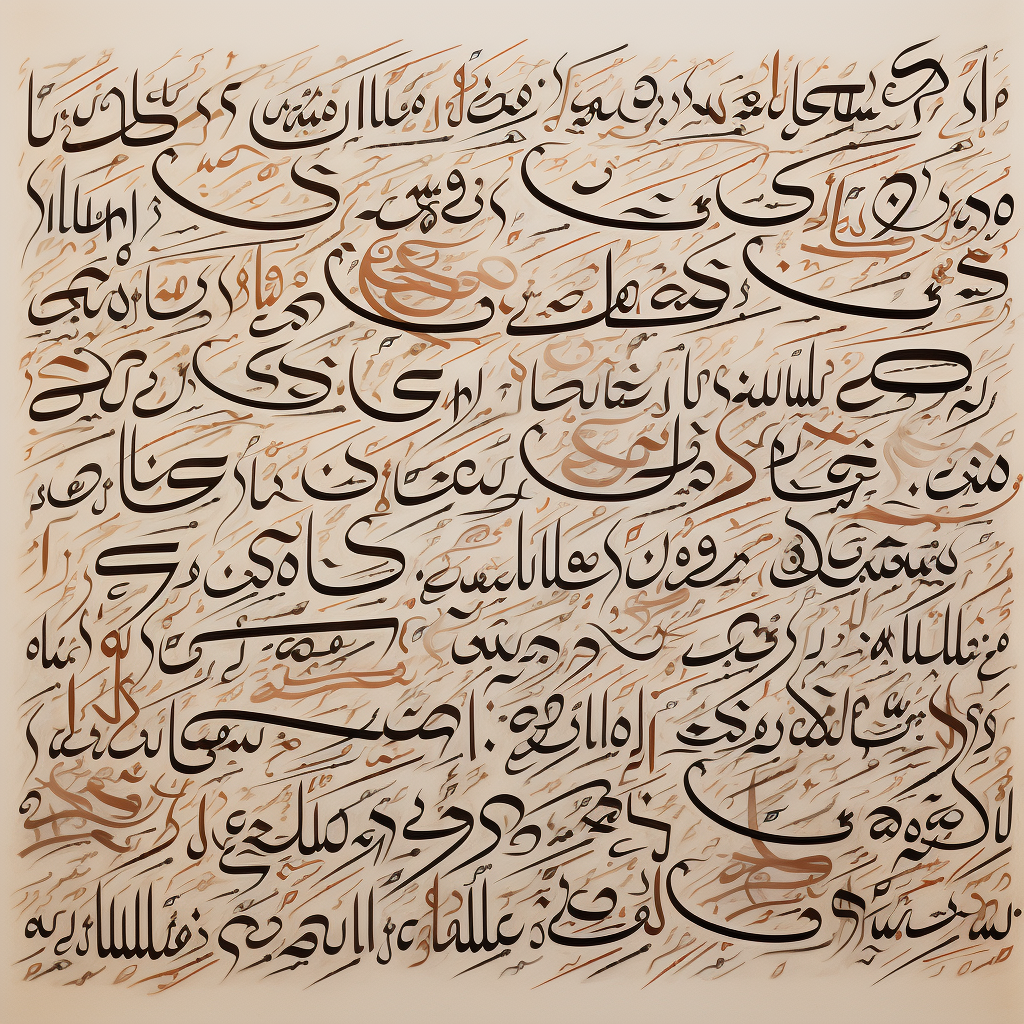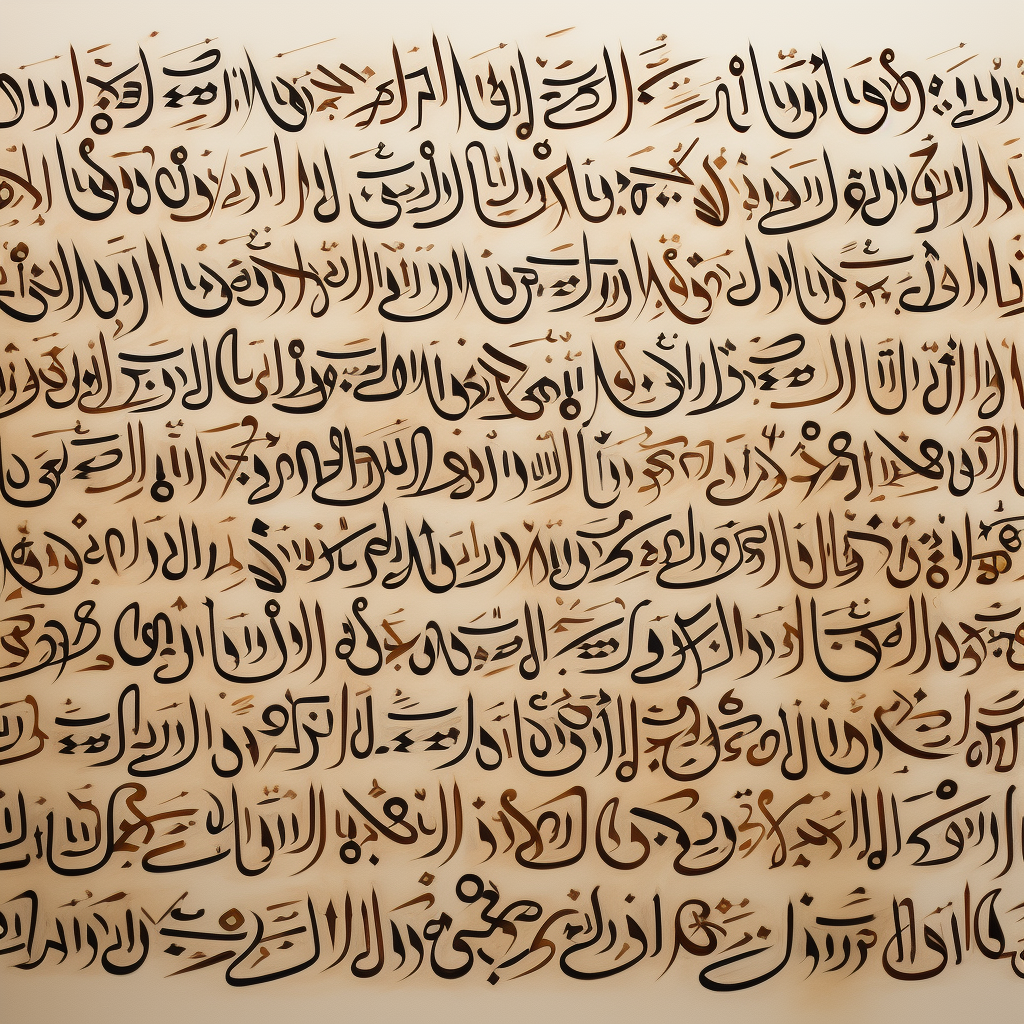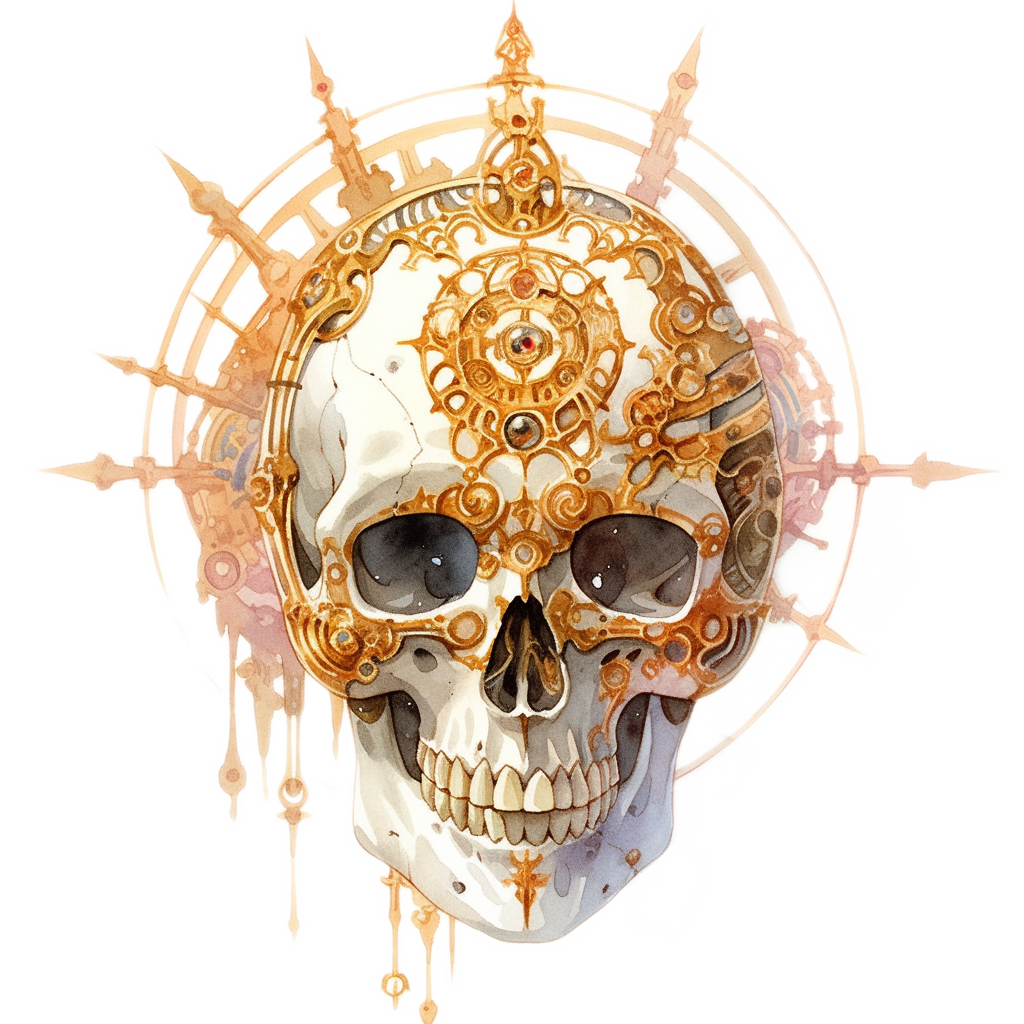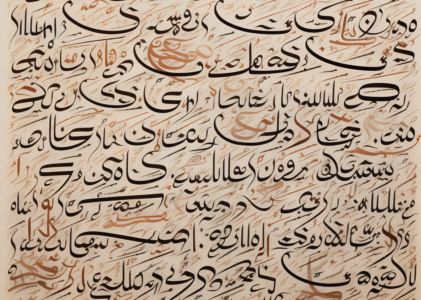Speak Like a ’Loth
The “yugoloth” language of the Lower Planes is actually three distinct, but related, dialects:
High Yugoloth, also known as Arkh’sheth, translates as ‘the eloquent redirection’. It’s the snooty, complex and layered speech that the high-ups of the race use when they’re plottin’ their next grand swindle.
Lesser Daemonic is also called Kurn’ragh. This is a language of malice and brutal grammar. Its words are sharp enough to cut you if you’re not careful. This is what your run-of-the-mill yugoloths gab in when they think the bigwigs ain’t listenin’.
Hordespeak, also called Gutter’losh or Carrion Cant. This is a bare-bones, highly simplified, down and dirty tongue for the dregs, the foot soldiers, and berks who ain’t climbed the ladder of treachery just yet.

Arkh’sheth
The High Yugoloth tongue, called Arkh’sheth by native speakers, is a linguistic labyrinth if there ever was one, and neither for the faint of heart nor the dull of wit. Imagine a language crafted around the essence of subterfuge, a system of communication as intricate as the webs of the drow, or the political gambits in the Nine Hells. Arkh’sheth speech has layers, see? It’s not just about what you’re saying; it’s about how, why and to whom you’re saying it.
Learning Arkh’sheth is akin to navigating a field of caltrops while blindfolded; every step’s a gamble. The language has enough tenses to make a Guvner’s head spin: there’s one for sarcasm, another for obvious lies, one for subtle deceptions, and even a tense called ‘poisonous speech’, where the very words can inflict nausea on the listeners—and each of these comes with its own grammatical nuance.
Forget vowels; those are for berks and primes. Written Arkh’sheth uses only consonants. Its words mutate and contort based on the vowels you mentally insert, like some sort of twisted puzzle. This makes yugoloth contracts particularly difficult to navigate – you might assume one meaning but in fact the sentence can switch around if you use a different vowel and mean something very different. Speakers of High Yugoloth are masters at taking advantage of the double and triple meanings that can be created with linguistic tricks like these.
And let’s not forget the honorific grammar: Many words change endings depending on whether you’re yammering about (or to) a superior yugoloth or some lesser daemon. It’s a language that demands not just lexical prowess but also keen insight into the unsaid and the ulterior. Use the wrong word ending in front of the wrong blood and you’re in for a world of trouble.
You see, to speak Arkh’sheth is not merely a way to communicate, it’s a laguage to strategise, manipulate, and, if you’re savvy enough, dominate. Any berk can learn a few phrases, but to become fluent? Harder than a pit fiends abs. And don’t even get me started on the written form; that’s a whole other tale of arcane symbols and encrypted meanings. In short, learning Arkh’sheth ain’t for the naive or the guileless. It’s for cutters who know that sometimes words are more perilous than any blade.
Do you fancy a cautionary tale, cutter? Well, there was this student, Elyra — a basher who thought she was clever enough to dabble in Arkh’sheth. She was a studious one, always buried in musty tomes, and thought she’d impress her masters at the arcane academy by summoning and then negotiating with a yugoloth. So, she memorised all these words, right? And she was feelin’ pretty proud of herself..
So she starts the summoning ritual, the air thickens, and voila!—an arcanaloth appears. Smug beast, with a knowing grin. Elyra starts yammering in Arkh’sheth, all confident like, her accent was right and everything… but see, she mixed up the honorific terms. She used the words meant for lesser daemons when addressin’ this sly fox. In Arkh’sheth, that’s not just a gaffe; it’s a slap to the ugly face of yugoloth pride.
The Arcanaloth grins wider, seein’ her mistake as an opportunity. Realising she was bluffing and was no expert speaker at all, he responds, using the tense for subtle untruths. He tells her he is compelled to offer her services in exchange for a trivial task. Naive Elyra, not catchin’ the tense, agrees. She’s told to read aloud the “binding contract” scroll the yugoloth gives her.
Elyra reads the incantation, and—no surprises here—the spell she casts ain’t what she thinks. It ain’t a binding spell; it’s a soul-switchin’ spell! The arcanaloth, now in her body, thanks her—using the tense for sarcasm, of course—and leaves her trapped in its now-former yugoloth form.
The Academy doesn’t take kindly to student bodies switchin’ species overnight. Last I heard, Elyra’s now servin’ an eternity as a summoning stock specimen in the very academy she once attended, while the arcanaloth walks Sigil with a student’s visage, causin’ all sorts of new mischief.
So, the moral? Arkh’sheth ain’t a language to be trifled with, lest you want to end up a tragic punchline in the unforgivin’ joke that is the Multiverse.
You might be wondering, as I did, about the ‘subtle tense for untruth’. Turns out this is another layer of complexity of Arkh’sheth; if you speak in subtle untruth then the words you say can’t easily be detected as lies because when you say them the implication is clear that they are untrue. Clear, that is, if you are an expert speaker of Arkh’sheth. To anyone who isn’t a native, it’s more likely that they’ll miss the use of the tense altogether, and tumble to the opposite, false, meaning. But any magic they might (wisely) be using to ensure the yugoloth is not lying is unable to detect the speech as lies. If that makes your brain-box hurt then yep, now you’re starting to understand what it’s like dealing with these fiends.
The ‘loths have some fascinating words that are unique to their language; the tongue’s a quagmire, so it is. Let me clue you in on a few words of Arkh’sheth that common doesn’t yet have words for (and to be helpful I’ve added in the correct vowels too):
- Zhr’kth: A betrayal so layered it loops back ’round to almost bein’ loyalty, but it ain’t. That’s “Zhr’kth” for ya.
- D’qlath: It’s like a lie, but it’s a lie you tell to unmake another lie that was told to subvert a greater truth. A proper, convoluted mess, I’ll tell you. Good for confusin’ the Guvners, it is.
- T’lann: Sort of a paradoxical respect you earn by bein’ unpredictably treacherous. A yugoloth offers you T’lann, you’re special… but not in a way you’d want to be.
- R’vuul: It’s an obligation you owe, but one that’s laced with the undertone that fulfillin’ it will cost you dearly, likely more than it’s worth.
- G’harne: A twisted form of love, where your affection causes pain and your attention brings ruin. It’s like possessiveness dialled up to eleven, transcendin’ into a form of art only a yugoloth could appreciate.
- Qy’zlth: The perfect word for a win-win situation if both wins involve multiple layers of sufferin’ and misery. A sort of dark harmony, where everyone loses so beautifully it’s almost like they’ve won.
Learn these words, and you’re a tiny step closer to not muckin’ up when dealin’ with these fiends. But remember, cutter, even if you speak their tongue, you’ll likely never truly grasp all their meanings—not unless you’ve got a soul as twisted as a ‘loth’s and a hundred years to learn.

Kurn’ragh
Lesser Daemonic is the tongue some cutters refer to as “Gehennan Prattle” or “Impish Yap”; the lesser daemon speech. Now, compared to the linguistic kaleidoscope of the High Yugoloth lingo, this one’s as straightforward as a plummet into the Styx. Still confusin’ for a green prime, but at least it won’t have you pulled into a web of legal contracts before breakfast.
What sets it apart? Well, for one, it’s got a simplified set of tenses. It ain’t so mired in all those cryptic moods and wicked subtleties, see? You’re less likely to accidentally promise yer soul while just askin’ for directions. And the vocabulary? More direct. Ain’t no need to dance around the subject with double and triple meanings, ‘less you really want to.
Why’s it safer and easier? Look, when you’re chewin’ the fat in Kurn’ragh, the yugoloths know yer not pretending to be one of ’em. They don’t expect you to grasp the full nuance of their native jibber-jabber. It’s like wearin’ a sign that says, “Oi, I ain’t from around here, but I’m tryin’, right?” Sort of earns you a begrudging respect—or at least, less outright deceit.
So, if you’re lookin’ to dip yer toe into the sulphuric puddle of Yugoloth culture, start with this one. You’ll still risk getting burnt, but at least you won’t be divin’ headfirst into a pit of molten lies. But still, remember, speakin’ these dialects without graspin’ their subtle poisons is like playin’ with a loaded crossbow pointed at yer own head. So, handle it carefully, cutter.
The words of Kurn’ragh focus disproportionately on violence, despair and death. There are few words describing concepts like emotion or colour. The same would go for you if you grew up on the Gray Waste too, cutter.
- Shelthor: An honourable death, the kind that’s hard to find in the Lower Planes.
- Vorlak: To be consumed whole, physically or metaphorically, by a power.
- Hraktil: Soul-forging, the process of turnin’ a lost soul into an object or lesser daemon.
- Quorxian: A word for the void, the cessation of existence, more terrifyin’ than any afterlife.
- Zuvorim: The act of dominatin’ another, soul and flesh; a common goal for many yugoloths.
- N’rexal: To betray unto death, often to feed the betrayer’s ascension in the fiendish hierarchy.
- Uxlar: A form of dark enlightenment, reachin’ a higher state through understandin’ a particular flavour of death.
Long story short, Kurn’ragh or lesser daemonic is probably the language to learn if you’re doing business across the Lower Planes. It’s a morbid tongue for sure, but it’s one that’s understood by all yugoloths, most night hags and baazteu and many tanar’ri. Learn the important words, but use ’em carelessly, or you might find yerself facin’ a Hraktil, heavens forbid, become Vorlak.
Gutter’losh
Also called Hordespeak, or Carrion Cant. This is a bare-bones, highly simplified, down and dirty tongue for the dregs, the foot soldiers, and berks who ain’t climbed the ladder of treachery just yet. There is no written form; it’s a verbal only language. Non-yugoloths would do well to avoid using hordespeak to high-up yugoloths, because rather than impressing a cutter that you’re making the effort, it will actually lose you respect as you’re demeaning yourself with the language of the lowest of their social order — and you’ll be treated as such in return. It’s only useful when you’re talking to the grunts themselves… and be warned that talking is not something that the more feral members of the race are very inclined to do.
Carrion cant is the linguistic muck at the bottom of the Hadean barrel, the yammerin’ of the lowliest hordelings and yugoloths and all the other dredge of the Lower Planes. It ain’t got the flourishes and subtleties of the higher dialects; it’s more like a club than a dagger—blunt and pointless.
So, what’s unique ’bout it? First, the words are short, often brutal sounds—more grunts, growls, and hisses than anything. Imagine tryin’ to spit out a sentence while chokin’ on brimstone; that’s how it sounds. As for the grammar, pssh, what grammar? It’s all about context. You don’t need tenses when the only time that matters is now. And plural? Nah, cutter. If you’re talkin’ about more than one thing, you just repeat the word. So, if you’ve got one measly soul, it’s “Zok.” A pile of ’em? That’s “Zok Zok.”
Don’t expect to be reciting any poetic epics in this tongue, but it’ll get yer point across when you’re down in the muck, elbow-to-elbow with the scum of the Lower Planes. Just don’t try usin’ it in any highfalutin yugoloth courts; you’ll get laughed out of the room—or worse.
There ain’t no thing like a Gutter’losh dictionary layin’ about, but lemme lann you a few words that might fit the bill for that lesser daemon yap.
- Blorx: A simple greetin’, like sayin’ “hello”.
- Grung: Food, or what passes for it in the Lower Planes.
- Pleek: A verb for tradin’ or barginin’.
- Snarf: To betray or backstab. A common enough action to warrant its own term.
- Vorq: Gold, jink, currency—what makes the Lower Planes go ’round.
- Niz: Lesser or inferior, somethin’ you don’t wanna be called.
- Zorp: To leave or exit; a fine word to know if you’re lookin’ to make a quick getaway.
Now, don’t go waggin’ yer tongue with these words thinkin’ you’re fluent. Yugoloths are crafty, and even the simpler forms of their language are still like walkin’ on razorvine—slip up and you’ll regret it.
Source: Jon Winter-Holt, mimir.net

